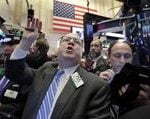This is one of the most famous scenes in film history. You probably don’t think you need to watch it again, but watch it and just pay attention to John Hurt before the alien rips its way out of his chest. It’s like his approach to acting in microcosm.
First, he’s complaining about the food in space and carrying himself like he has maybe just a touch of indigestion. Then he looks like he might vomit. Then he seemingly tries to vomit, but nothing will come up. By the time he’s writhing around on the table, you’re so fully invested in the scene that literally anything could happen, and you’d believe it.
If you stop and think about this scene — or, really, just about anything about the central monster in Alien — it doesn’t really make sense. A tiny little baby monster chews its way through a ribcage that quickly? And nobody immediately destroys it once it does? This moment requires a ton of suspension of disbelief to work, and almost all of that burden is on Hurt. That it succeeds at all is testament to the film’s cast and crew. That it’s one of the most famous scenes in cinematic history is all John Hurt.
The last few moments of George Orwell’s Nineteen Eighty-Four seem like they’d be impossible to put on film. In them, Winston Smith, who previously questioned everything he knew about the totalitarian society he lives in and nearly became a revolutionary, has been broken. The book’s final sentences — “He had won the victory over himself. He loved Big Brother” — are a chilling climax, but they’re so internal. How do you translate that to a movie screen?
Truth be told, this film version of the book, with Hurt as Winston, cheats a little bit, having him whisper “I love you” in voiceover after looking at an image of Big Brother. But it doesn’t feel like too much because of the sheer, shattered emptiness on Hurt’s face. You really believe this is a guy who’s been torn apart at the seams, who’s realized just how all-encompassing the nightmare he lives in has become.
As a film adaptation, 1984 doesn’t quite do justice to one of the most important novels ever written. It’s always underlining things that its visuals already convey nicely. But Hurt’s performance throughout makes him just about the perfect Winston Smith. After you watch the scene above, check him out in the scene where Winston is tortured and betrays his lover in the name of not having his face chewed off by rats. The horror is so much more horrific, thanks to his work.
There are many other clips I could share here, but perhaps Hurt’s most powerful weapon was his voice — to the degree that he could create a full character without appearing at all. That was certainly true when he voiced animated characters in movies like Watership Down(where he played the rabbit Hazel) or the animated Lord of the Rings (where he voiced Aragorn). But it was even true in Dogville, Lars von Trier’s polarizing film about America’s inability to see its own worst self, where Hurt played the role of “narrator,” normally a thankless part.
Yet despite not having a character at all, Hurt still gives the narrator personality. He’s detached and arch, cutting and witty. He watches everything that transpires in the little town of Dogville and offers what seems like omniscient commentary — but really he’s covering up the true horrors happening there. Hurt’s beautiful baritone, then, stands in for all authority figures, trying to say everything’s fine when nothing is fine.
If I were to name an idea that unites Hurt’s career, it might be that: People will tell you things are okay, but they never are. Look for those who are in trouble — thanks to totalitarianism, or social persecution, or alien monsters — and do what you can.



